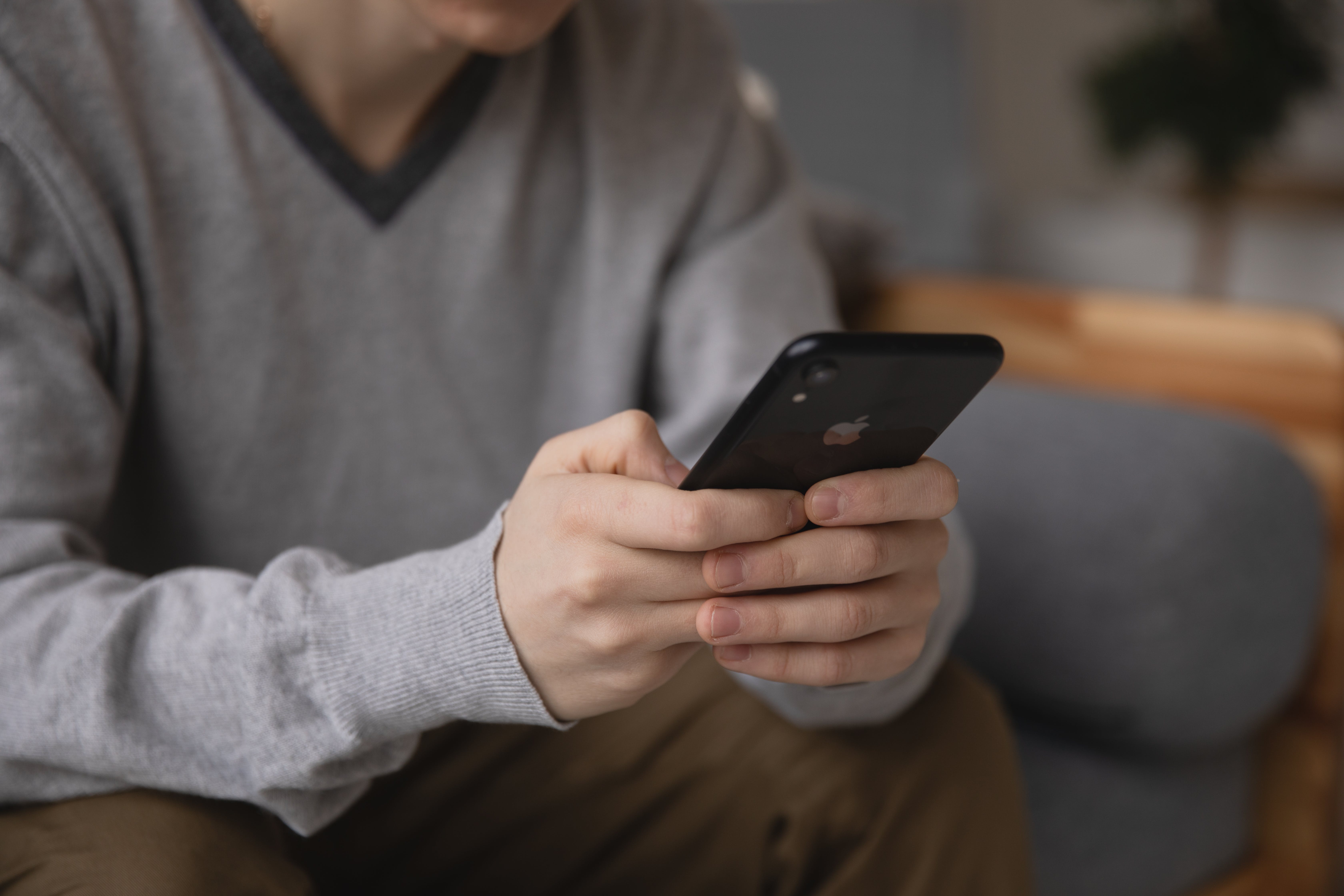Digital mindfulness for family well-being

By Leah Persky, PhD and CFLE • Professional and Community Education Manager
The now months-long Hamas-Israel War and the tremendously challenging humanitarian crisis is hard to turn away from. You may find yourself increasingly turning to the news for updates. Many people feel a sense of fatigue and sadness as the war continues and so much is lost. There are also many other events to keep updated on, including the upcoming presidential election next year and the war in Ukraine. The hyper-partisan political environment and increases in hate crimes and antisemitism continue to impact our physical and emotional well-being.
It is important to stay up-to-date on world events, but we also must be mindful about what is sustainable for our own well-being. This can feel like a lot to manage while also trying to enjoy the winter holidays and the upcoming start to the year. Time off from school and work may mean that you and your family are spending more time in front of screens. This is a good time to check with ourselves and our media diet with a focus on understanding how our habits impact our well-being, and our children’s well-being.

Many people feel compelled to keep up with the news and often may feel guilt, anger, fear, sadness, and a whole other array of emotions. These events have a real bearing on our lives and impact many of us personally. It can be a challenge to disconnect from constant news updates, even when you know it may not be the best choice for your well-being.
Have you noticed how much news you are consuming and how you are feeling afterwards? There are many reasons to be more mindful of screens and media consumption, for ourselves and for our kids. Over-saturation of news on a regular basis, exposure to hours of social media, or video games all take their toll on our physical and mental well-being. Not only do kids pick up on the feelings of their parents and adults in their lives; they are also uniquely vulnerable to over-exposure to media of all kinds.
We know that the use of digital devices is the hallmark of our time. Most of us would struggle to go a day without our devices and not be able to do our work. Screens are not inherently bad or good, but rather something so ubiquitous that we may allow them to have a bigger impact on our life than we might like. We also may fall into bad habits with technology and screens; these can be hard to break and negatively impact our individual and family well-being. Being practical, we must think about the role of screens and media in our lives and manage our media diet for ourselves. This will set us up to be as healthy as possible.
Here are a few tips to help you become more mindful of your digital wellness and support the kids in your life without judgement or guilt. It all begins with a quick audit on our own screen use and that of your family. Ask yourself the following:
- Where do you get your information and why?
- What are your digital habits? What about your kids? Are there certain times of day you overconsume the news or social media or any other media? What is not serving you and why?
- How do feel after being online or watching the news? Also, how might your child feel or behave after doing something online? Observe and discuss with your family and think about what guidelines will set you up to feel your best.
- Talk with pre-teens and teens about their media diet. It is increasingly important to explore where you get your information and why and exploring the damage of fake news and how ubiquitous it is.
- Set aside some time each week free from digital devices. Maybe that is dinner, or no phones in the bedroom, or on short car trips around town. See what feels right for your family.
Know that there is not a one-size-fits-all approach to gaining control over the screens and media in your life. Bringing mindfulness into your media diet, reflecting on what you need, and making small changes to take care of your well-being will set you up on the right path. You can always adjust from there.
We know that screens and our digital world are here to stay, so being aware and mindful of their power, both good and bad, is an essential tool for success and health. Caring for our digital well-being will positively impact our kids as we role model healthy habits and create space for open communication about the news of the day and the power of our digital world.
Reach out to me with questions or if you are looking for support to create your digital well-being plan: lpersky@jfcsmpls.org or 952-542-4825
Newsletter Sign-Up
Sign up to read more articles like this and stay up-to-date!